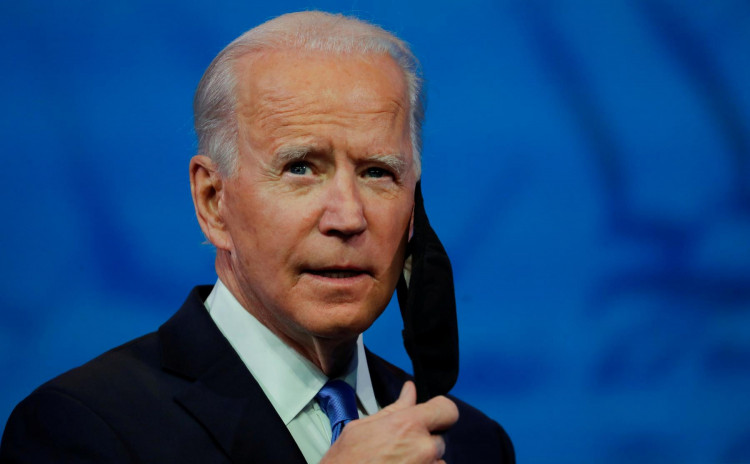President Joe Biden momentarily faltered when addressing the critical issue of ongoing hostage negotiations in Gaza, a lapse that has since ignited a fervent debate over his mental fitness for the presidential office. As he endeavored to tie the complex situation with broader foreign policy challenges, including American support for Ukraine and Israel, Biden appeared to momentarily struggle to recall "Hamas," the militant group involved in the conflict with Israel.
Responding to a question on the necessary steps to resolve the hostage situation, President Biden initially diverged, linking the matter to broader questions of American influence and commitments abroad. "This indirectly has a lot to do with the hostage deal and what's going on in the Middle East - the decision on what we do relative to Israel, the decision what we do or in terms of American funding of whether we're going to engage with the situation in Ukraine," Biden elaborated, emphasizing the interconnected nature of U.S. foreign policy decisions.
However, as he continued, it became evident that he was grappling to find the correct terminology, prompting a reporter to suggest "Hamas," to which Biden promptly acknowledged, "Yes, I'm sorry - from Hamas."
This incident is not isolated in Biden's public speaking engagements. At a previous event in Las Vegas, he mistakenly referred to French President Emmanuel Macron as François Mitterrand, a former French leader who passed away in 1996. Such moments have intensified scrutiny of Biden's age and cognitive abilities, especially as the nation looks ahead to the 2024 presidential election.
Criticism has come from various quarters, including from within his own party. Representative Dean Phillips (D-Minn.), while expressing respect for Biden, publicly questioned the president's continued fitness for the demanding role, suggesting that the Democratic Party is in denial about the potential implications. "I admire our President," Phillips wrote, "But shame on all of you pretending everything is ok. You are leading us - and him - into a disaster, and you d--- well know it."
Supporters, however, rush to Biden's defense, highlighting his lifelong battle with stuttering, which they argue is the root cause of such public speaking challenges rather than any cognitive decline. They point to his extensive career and accomplishments as evidence of his capability to lead, regardless of occasional verbal missteps.
The debate over Biden's mental acuity is set against the backdrop of a potential electoral showdown with Donald Trump, who, at 77, also faces questions about age but has been less scrutinized for verbal gaffes. Biden, for his part, has sought to redirect focus toward policy and governance, criticizing congressional Republicans for their stance on border funding and accusing them of capitulating to Trump's influence. "Frankly, they owe it to the American people to show some spine and do what they know to be right," Biden asserted, challenging his political adversaries to prioritize national interests over partisan politics.
As the discourse around Biden's mental fitness continues, it underscores the broader conversation about the criteria and expectations for presidential leadership in an era marked by unprecedented challenges on both the domestic and international fronts.






